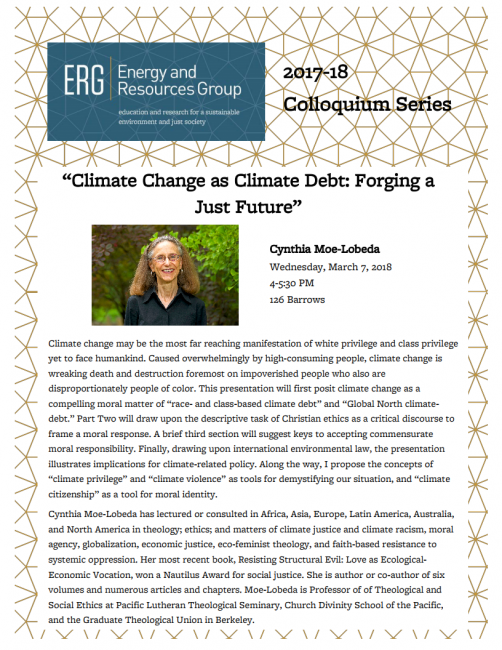Cynthia Moe-Lobeda has lectured or consulted in Africa, Asia, Europe, Latin America, Australia, and North America in theology; ethics; and matters of climate justice and climate racism, moral agency, globalization, economic justice, eco-feminist theology, and faith-based resistance to systemic oppression. Her most recent book, Resisting Structural Evil: Love as Ecological-Economic Vocation, won a Nautilus Award for social justice. She is author or co-author of six volumes and numerous articles and chapters. Moe-Lobeda is Professor of of Theological and Social Ethics at Pacific Lutheran Theological Seminary, Church Divinity School of the Pacific, and the Graduate Theological Union in Berkeley.
Climate Change as Climate Debt: Forging a Just Future
Climate change may be the most far reaching manifestation of white privilege and class privilege yet to face humankind. Caused overwhelmingly by high-consuming people, climate change is wreaking death and destruction foremost on impoverished people who also are disproportionately people of color. This presentation will first posit climate change as a compelling moral matter of “race- and class-based climate debt” and “Global North climate-debt.” Part Two will draw upon the descriptive task of Christian ethics as a critical discourse to frame a moral response. A brief third section will suggest keys to accepting commensurate moral responsibility. Finally, drawing upon international environmental law, the presentation illustrates implications for climate-related policy. Along the way, I propose the concepts of “climate privilege” and “climate violence” as tools for demystifying our situation, and “climate citizenship” as a tool for moral identity.


